Trusted News Since 1995
A service for global professionals · Friday, April 10, 2020 · 514,279,771 Articles · 3+ Million Readers
Latest News from the Malawi Diaspora
Trusted News Since 1995
A service for global professionals · Friday, April 10, 2020 · 514,279,771 Articles · 3+ Million Readers
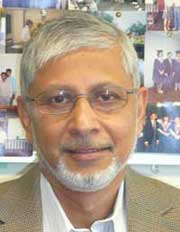
Asia-Pacific, Civil Society, Development & Aid, Economy & Trade, Featured, Global, Headlines, Health, Humanitarian Emergencies, TerraViva United Nations
– Within weeks, the Covid-19 epidemic was classified by the World Health Organization (WHO) as an epidemic of international significance, triggering a pre-agreed WHO response. By the end of the first week of April, more than 1.3 million people had been confirmed as infected, with over 65,000 deaths across the world.

Anis Chowdhury
Many governments of developing, especially poor countries are unsure what to do, fearing the likely economic consequences of the ‘lockdowns’ increasingly adopted by Western economies. Indeed, lockdowns may shut down businesses relying on daily turnover and eliminate incomes for daily rated workers.
Meanwhile, most East Asian and some other governments have acted early to trace, test, isolate and treat the infected without lockdowns. Yet, most measures recommended have been criticized as beyond the means of the most vulnerable societies and populations.
Early action crucial
Early measures have required ‘physical distancing’ and other precautionary measures — at work, at home and in the community, at relatively low cost. People also need to be prepared to live differently for a long time to come as part of a ‘new normal’, at least until everyone can be effectively vaccinated.
‘All of government’ approaches are urgently needed everywhere to provide effective leadership to ‘whole of society’ efforts to contain the spread of viral infections. While this is no conventional war, only whole of society mobilization efforts can help mitigate major economic disruption and damage.
This should not only involve public health and police authorities, typically those empowered by draconian lockdowns. But repressive measures are unlikely to secure needed public support for effective enforcement and implementation, and adoption of needed behavioural and cultural changes.
Health authorities must provide publics with much better understanding of the threats faced and the rationale for policy responses to secure compliance. Public appreciation of the challenges involved is crucial for policy compliance and effective implementation.
Physical distancing, social solidarity
Kerala state in southwestern India, with a population of 35 million, has become “a model state in the fight against Covid-19”. Its Left Front-led government was among the first to introduce precautionary state-wide measures against the novel coronavirus threat.
Through appropriate and effective early actions, it has successfully slowed the spread of infection in the state, largely by promoting physical distancing and mainly sanitary precautionary, measures, and providing better protection for health staff well before the hugely disruptive and draconian lockdown imposed in India in late March.
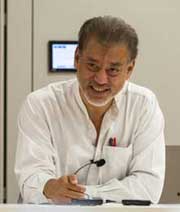
Jomo Kwame Sundaram
The Kerala state government invited religious leaders, local bodies and civil society organizations to participate in policy design and implementation, considering its specific socio-economic conditions, including urban slum environments.
It has communicated effectively in different languages to educate all, including migrants, and to prevent stigmatization of those infected, even opposing the term ‘social distancing’, which has caste connotations, with ‘physical distancing and social solidarity’.
Returning migrants
Despite Kerala’s long-standing achievements in education, health and science, highly educated Keralans tend to migrate to work out of state, if not abroad, seeking more lucrative employment. The state was still recovering from the devastating floods and nipah virus epidemic of 2018 when tens of thousands began returning after losing jobs in the Middle East.
Kerala is also the destination for a large number of Indian internal migrants. With the nationwide lockdown, non-residents, equivalent to almost 5% of Kerala’s population, have returned, causing a surge of new infections.
Such unusually high movements of people have made the state more vulnerable. Despite some controversy, the state appears to have handled the migrant issue very well, especially compared to other state governments and the central government.
There has also been a close connection between Kerala and Wuhan, a popular educational hub offering affordable quality medical and other courses; the first three positive Covid-19 cases detected in India involved returned university students in Wuhan.
The state health department promptly went into action, setting up a coordination centre on 26 January. Recognizing there was no time to be lost, the Kerala state government set up mechanisms to identify, test, isolate and treat those infected, quickly earning an excellent reputation.
Less disruptive, less costly, more effective
Some key features of Kerala’s response, undertaken by a government with very limited fiscal resources, are hence instructive.
*All-of-government approach: involving a range of relevant state government ministries and agencies to design measures to improve consistency, coordination and communication, and to avoid confusion.
*Whole-of-society approach: wide community consultations, including experts, to find the most locally appropriate modes of limiting infections, along with means to monitor and enforce them.
*Social mobilization: communities were provided essential epidemiological information to understand the threat and related issues, ensure compliance with prescribed precautionary measures, and avoid panic.
*No one left behind: adequate supply of essential commodities, particularly food and medicines, has been ensured, especially to protect the most vulnerable sections of society.
To make things worse, Kerala has been discriminated against by the central government’s disaster relief fund on specious grounds. The largely agricultural state has modest fiscal resources of its own as state governments in India have limited fiscal rights and resources.
Credible leadership
The Kerala government has set up 18 committees and holds daily evening meetings to evaluate the situation, issuing media updates about those quarantined, tested and hospitalized .
At these meetings, the state Health Minister and Chief Minister calmly explain what is going on, including what the government is doing. They thus provide credible leadership on the difficult issues involved, securing strong public participation for its mass campaign of containment.
Kerala’s approach has proven less disruptive, less costly and more effective than most others. After recording its first COVID-19 case on January 30, its infection and death rates have been kept relatively low despite much more tracing and testing.

Civil Society, Headlines, Press Freedom, TerraViva United Nations
Andrés Cañizález is a Venezuelan journalist and Doctor of political science

– All over the world, journalism is going through an era of uncertainty. It is not yet clear what the business model for the news field will be, and this is happening precisely at a time when information is a central issue in every person’s life.
The coronavirus pandemic has highlighted both dimensions. Citizens in preventive confinement consume much more news regarding the wide implications of COVID-19; but this, in turn, happens under a modality not necessarily lucrative for the news business. The scenario of a post-pandemic global recession is stirring fears in the news business field among many countries.
The Reuters Institute for the Study of Journalism published its report on the future and main trends expected in this field for 2020. This was released before the global spread of the coronavirus. However, the document is very relevant as it draws important lines on the future of journalism.
In this article, for reasons of space, the most significant aspects of the executive summary – just the tip of the iceberg – are included. For those interested in further detail, I recommend reading it in full here.
The study is based on surveys administered to executives in the journalistic world and leaders of digital projects in the media. A total 233 people in 32 countries were surveyed. The countries include the United States, Australia, Kenya, South Africa, Mexico, Argentina, and Japan.
Nevertheless, most respondents live in Europe: United Kingdom, Germany, Spain, France, Austria, Poland, Finland, Norway, and Denmark. It is very important not to lose sight of this fact, as it implies the viewpoints of people living in environments with no issues regarding connectivity, Internet speed, or access to smart phones.
Below, a closer look at some interesting aspects:
Most media executives claim they are confident about the prospects of their companies; but they are much less certain about the future of journalism. This is usually the case in surveys: When people are asked if conditions in their country will get worse, to which they usually reply affirmatively, next thing they say – conversely – they expect an improved personal situation.
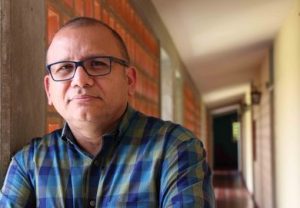
Andrés Cañizález
One of the significant issues about journalism resides in local news output. There are fears of loss of credibility impacting journalists and media in general; and this may be intensified by attacks on journalism from public officials. Furthermore, it may be the case that Donald Trump is turning into a role model of this form of attack for populist leaders of any ideological persuasion in their run for power.
Closely related to the above, 85% of the respondents agreed that the media should do more to fight fake news and half-truths, that is, addressing disinformation while keeping an eye on the fact that it can be encouraged or steered straight from the hubs of political power.
The global crisis generated by the coronavirus, leaving thousands of casualties behind, with no certainty about the effectiveness of the vaccines currently under evaluation, has been a hotbed for the spread of fake news. These not only increase in contexts of political tension, but also thanks to the uncertainty prevailing at this time.
How should journalism be funded? Media owners still rely heavily on subscription fees: Half of them assure it will be the main avenue of income. About a third of respondents (35%) think that advertising and income from readers will be equally important. This is a big change in the mindset of those running the media: Only 14% venture that they will manage to operate exclusively on advertising.
Without knowing exactly the global economic impact of coronavirus, news companies must brace themselves for the direct impact of a massive recession on the pockets of their readership base, as they, faced with the dilemma of paying for news or meeting basic needs, may end up choosing the latter.
On the other hand, there is much concern among publishers and media project leaders about the growing power of digital platforms providing social media to the public (Facebook, Twitter, Google). Although this concern is widespread, there is no consensus on what kinds of response should be given to this new power that has been consolidating.
It is feared that regulations approved by the legislative or executive branches of government will end up hurting instead of helping journalism (25% to 18% of respondents), although most consider that they will not make a noticeable difference (56%).
2020 will be the year of podcasts. Over half of respondents (53%) state that initiatives in this field will be important this year. Others point to text-to-voice conversion as a way of capitalizing on the growing popularity of these formats.
We are likely to see more moves from the media this year to customize digital covers and explore other forms of automatic recommendation. Over half of respondents (52%) state that such AI-supported initiatives will be very important; but small companies fear to lag behind. This is still practically a science fiction topic for readers in Southern Hemisphere countries.
Attracting and retaining talent is a major concern for media companies, especially for IT positions. Another concern relates to the way in which companies are taking action on gender diversity. In this area, 76% believe they are taking steps in the right direction.
However, although progress is being made on gender diversity within the news media, this is not the case for other forms of diversity – geographic (55%), political (48%), and racial (33%). There is remarkably less progress regarding decisions inside of news companies and, in some cases, these issues that are just not part of their agendas.
The outlook for the future of journalism, in general, is marked by questions rather than certainty. The world as it turns in the aftermath of the COVID-19 pandemic may further trigger some of these questions, without any likely answers in the short term.
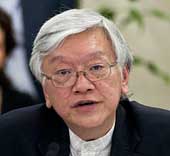
Civil Society, Climate Change, Economy & Trade, Global, Headlines, Poverty & SDGs
– Martin Khor Kok Peng passed away just after the end of the first quarter of 2020. He leaves behind an unusually rich legacy. Atypically for people mainly working in the worldideas, he was also a very practical and pragmatic activist who successfully built and sustained several important initiatives which will live on after him.

Martin Khor
Martin was widely well known,both in Malaysia and internationally,and will be remembered for his commitment to a variety of causes perhaps best summed up by the concept of sustainable development, adopted by world leadersat Rio in 1992, and reaffirmed in Johannesburg in 2002, Rio again in 2012 and, most recently, through the Sustainable Development Goals declared in 2015.
Born in 1951, Martin’s passing,less than a year after the demise of his mentor and close collaborator, the nonagenarian Mahathir contemporary, S M Mohammed Idris, suggests the end of an era, not only in Malaysia, but also beyond.
Already there are many pronouncements about the end of the Third World, of the solidarity of the global South, and most recently, about the related demise of multilateralism, especially as it was transformed in the 1970s when the United Nations committed to a New International Economic Order, thanks to the G77 caucus of developing countries at the UN.
Paths not taken
Reflecting on Martin’s career path, one cannot but be struck by the choices he made, and by paths not taken. Leaving his hometown of Penang, Martin wasa pre-university classmate of current Prime Minister Lee Hsien Loong in Singapore, before going to Cambridge together.
Later, after a few months in Singapore’s civil service during 1974-1975, which almost surely would have led him to a cabinet position in Lee’s cabinet, Martin ‘broke his bond’ to return to Malaysia to start teaching for a pittance at the Science University of Malaysia (USM).
From there, he began his lifelong engagement with the Consumers Association of Penang (CAP) and Friends of the Earth, Malaysia (SAM), collaborating closely with Haji Idris, to wage efforts to protect Penang, and later the countryagainst ecological and other disasters in the name of development.
From local to global
Followingan international civil society solidarity conference in 1984,Third World Network (TWN) was born and rapidly developed by Martin to promote collective solidarity to protectdeveloping countries’ national interests as the global South came under siege with the neoliberal ascendance of the 1980s.
The South Summit in Kuala Lumpur in 1986 established the South Commission worked under former Indian Prime Minister Manmohan Singh which recommended establishing the South Centre as an intergovernmental policy research and analysis institution for developing countries headquartered in Geneva and chaired by Tanzanian President Julius Nyerere. Years later, Martin took over the South Centre in 2009, strengthening its finances, capacities and impact, by creatively mobilizing resources.
The personal is political
Martin’s widow, Meenakshi Raman was a victim of Malaysian political repression in 1987. But without personal rancour, Martin worked closely with the Mahathir and subsequent Malaysian administrations, especially on internationalcauses, includingtrade, intellectual property, biopiracy and climate change.
Martin touched many, inspiring all by his tireless commitment. He was often more than happy for others to getcredit for his discreet efforts behind the scenes with relevant research and skilled drafting. His persistence was legendary, but everyone knew his efforts were not for personal gain.
Martin waswell known for his indefatigable energy and meticulousness in preparing policy and advocacy briefs on many key matters of concern to developing countries, often working late into the night as necessary. This reputation gained him access to many government and other leaders.
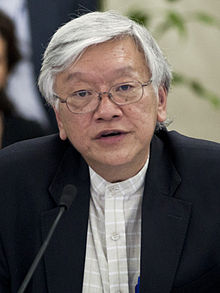
Civil Society, Climate Change, Featured, Global, Headlines, Poverty & SDGs
– We are greatly saddened by the passing of Martin Khor, a long-time friend and colleague, an undaunted fighter for the poor and underprivileged, a passionate believer in a more balanced and inclusive multilateralism, a rare intellectual and eloquent orator, an icon of the Global South worthy of veneration, greatly respected for his struggle for justice and fairness against the dominance and double-standards of big economic powers.
Martin was born in 1951 in colonial Malaysia, still under British rule, to a family of journalists. After his primary and secondary education in Malaysia, he left for the UK in 1971 to study at the University of Cambridge, where he obtained his B.A Hons and M.A. in economics, before completing his second Masters in Social Sciences at the University of Science, Malaysia in 1978.

Martin Khor
In his Master’s thesis, he grappled with the changing nature of external dependence and surplus extraction in Malaysia as it moved from colonial to post-colonial status, with a view to its implications for the scope and limits of industrialization and development; a study which left an indelible mark on his subsequent engagement and activities in a world characterised by increasingly asymmetric power relations.
He started his professional career as an Administrative Officer at the Ministry of Finance, Singapore before joining the University of Science, Malaysia as lecturer in Economics in 1975.
He became the Research Director of The Consumers’ Association of Penang in 1978, an independent non-profit international research and advocacy organization on issues related to development.
The Third World Network (TWN) was created in 1984 at an international Conference on “The Third World: Development and Crisis” organized by the Consumers’ Association of Penang. In 1990, Martin became the Director of the TWN, perhaps the most important NGO from the developing world with operations globally, both in the North and the South, through offices, secretariats and researchers, including in Penang, Kuala Lumpur, Geneva, Beijing, Delhi, Jakarta, Manila, New York, Montevideo and Accra.
He had an envious ability to synthesise and explain complex negotiating issues to a broad audience and in a way that could bring on board activists and policy makers alike
Martin held both positions at the Consumers’ Association of Penang and the TWN until 2009 when he became the Executive Director of the South Centre in Geneva, an intergovernmental organization of developing countries established in 1995 to undertake research in various national and international development policy areas and provide advice and support to developing countries in a variety of international negotiating fora.
Under his leadership, the South Centre became an important voice in discussions on international trade and investment, intellectual property, health, global macroeconomics, finance, sustainable development, and climate change.
During his tenure, the Centre extended significantly the scope and quality of its policy research and advice, building an enhanced reputation and level of trust among developing countries in the struggles to protect and promote their interests. After leaving the South Centre in 2018, Martin returned to Penang, already suffering from cancer, and acted as Chairman of the Board of TWN until his death on April 1, 2020.
Martin was a staunch multilateralist but not an advocate of globalization, at least in the neo-liberal guise it acquired from the early 1980s. On the one hand, he was well aware that individually developing countries could not obtain fair deals with major (and minor) developed countries in the international economic system.
On the other hand, he knew that multilateral rules and practices were unbalanced, designed to subject developing countries to the discipline of unfettered international markets shaped by transnational corporations and self-seeking policies of dominant powers in the North, denying them the kind of policy space they themselves had enjoyed in the course of their industrialization. His efforts focussed on reshaping multilateral rules and practices as a way to bring about systemic changes in the service of development.
Martin did this on three fronts. From the mid-1980s he focussed mainly on international trade issues, particularly those raised by negotiations during the Uruguay Round, and subsequently in the WTO and the proliferating free trade agreements and bilateral investment treaties that accompanied the shift to a neo-liberal international economic order.
Martin was instrumental in bringing the attention of policy makers and activists to the implications of new trade rules for the industrialization and development of the Global South arising from more demanding obligations on tariff and non-tariff measures, industrial subsidies, investment and intellectual property rights.
He made several proposals for reform in these areas to remove imbalances and constraints over industrialization, and economic diversification more generally, in the Global South. He opposed free trade agreements with developed countries on the grounds that, by simultaneously curtailing the policy space available to governments while expanding the space for abusive practices by the large international firms that dominate international trade, they posed an even greater threat to development than the earlier generation of trade rules under the GATT.
In the aftermath of the Marrakech agreement, Martin was a prominent figure blocking efforts by OECD countries to push for a multilateral investment agreement, to extend the neo-liberal agenda at the first WTO ministerial in Singapore and subsequently at the third meeting in Seattle and to water down the Doha Development Agenda at the Cancun Ministerial in 2003.
The second front concerned the issues around the operations of the Bretton Woods Institutions, notably debt and development finance. Martin had been a long-time critic of the Washington Consensus, and in particular, the use of policy conditionalities attached to lending by the IFIs which sought to push a series of damaging measures on developing countries in the name of efficiency, competitiveness and attracting foreign investors.
But he started to pay greater attention to these after the 1997 Asian financial crisis, arguing against austerity, advocating capital controls, orderly debt work-out mechanisms, multilateral discipline over exchange rates and financial policies of major advanced economies and global regulation and supervision of systemically important international financial firms.
He was a particularly strong advocate of these positions in his role as a member of the Helsinki Group on Globalisation and Democracy. Martin took the helm of the South Centre just before the 2009 Global Financial Crisis hit and was quick to provide substantive assistance to developing countries during the 2009 UN Conference on the World Financial and Economic Crisis and its Impact on Development, identifying the key issues for them and working to ensure their insertion in the Outcome Document.
He continued to push hard on these issues through the research output from the Centre while adding the related areas of illicit financial flows and international tax issues to its workload as developing countries sought support on these matters.
The third, and increasingly prominent, front was climate change and sustainable development which gained added importance in international discussions in the new millennium. Environmental issues had always been part of Martin’s work as head of TWN and as a member of the Commission on Developing Countries and Global Change.
But this widened significantly after the UN Conference on the Environment and Development in 1992 in Rio de Janeiro. Subsequently, Martin became a member of the Consultative Group on Sustainable Development and a regular attendee at the UN Climate Change Conferences that began in 1995 playing a particularly important role in the Copenhagen COP in 2009 where the neglect of the development dimension by advanced economies, their reluctance to acknowledge common but differentiated responsibilities and their naïve belief in market-friendly solutions to the climate challenge led to acrimonious discussions and the eventual collapse of the conference.
While he clearly recognized the need to reduce the pace of emissions and protect the environment, Martin was wary that the measures promoted by industrial countries could become instruments to stem development in the Global South. Under his leadership an important part of the work in the South Centre focussed on this issue.
During this time Martin was a strong critic of tighter intellectual property rights, particularly through trade agreements, that restricted the transfer of the technologies developing countries needed to help in the fight against rising global temperatures and to mitigate the climate damage they were already experiencing.
This work had a parallel in Martin’s fight to ease the burden of TRIPs on developing countries in dealing with public health emergencies which, thanks to a successful civil society coalition where Martin was a pivotal figure, eventually succeeded in a permanent amendment to the TRIPs agreement in 2017.
Martin’s support to developing countries in the climate change negotiations, carried out through the South Centre and TWN, fostered greater coordination among developing countries in protecting and promoting their development policy space in the climate negotiations, highlighting equity, and stressing the international obligation of advanced economies to provide support to developing countries.
Martin’s approach to advancing progressive solutions on all these fronts was always one of quiet determination driven by a passionate commitment to strengthening the voice of developing countries.
He had an envious ability to synthesise and explain complex negotiating issues to a broad audience and in a way that could bring on board activists and policy makers alike. He became a trusted advisor to policy makers and diplomats across the developing world.
But Martin was equally comfortable engaging in a productive debate with policy makers from advanced countries and in mainstream institutions. His was a uniquely calming but authoritative voice for increasingly anxious times, one that has been silenced too soon and at a moment when his commitment to building a fairer and more resilient world was needed more than ever.
Yilmaz Akyüz, Former Director, Globalization and Development Strategies Division, UNCTAD; and Former Chief Economist, South Centre, Geneva.
Richard Kozul-Wright, Director, Globalization and Development Strategies Division, UNCTAD, Geneva.

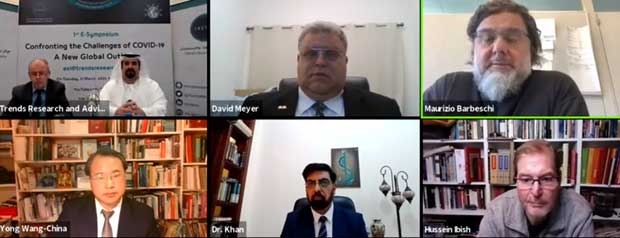
– Global crises need global solutions yet some adjustments will have to be made if the world has to adopt a multilateral approach toward tackling the Corona pandemic, a senior academic said on Tuesday, March 31.
Participating in an e-symposium organized by the think-tank, TRENDS Research & Advisory, Prof. Yong Wang of the School of International Studies and Director, Center for International Political Economy at Peking University, said the G-20 has already taken an initiative and more such efforts are needed.
“We have our national interests but for facing challenges such as this we should work together,” he said. Prof. Wang was a panelist at the e-symposium – – Confronting the Challenges of COVID-19: A New Global Outlook – which was attended by several experts and researchers from around the world.
“Instead of scapegoating countries like China and India, countries like the US should look at their policies. We need to have a broader perspective on this,” said Prof. Wang.
Sharing China’s experience, he said that the country did the right thing by taking very tough measures such as the lockdown of Wuhan. “Indeed we are in the era of globalization and it has been rightly pointed out that this won’t be the last such outbreak,” he said.
“Chinese scientists shared genetic sequencing, which helped in data compilation and intelligence gathering to tackle the virus. The pandemic is under control in China and factories and companies are opening now. However, the government is still applying a very cautious approach,” he said.
Experts participating in this first-ever e-symposium of its kind highlighted the ongoing struggle between forces of globalization and protectionism but emphasized the need for a collective response to the Covid-19 challenge.
Prof. Maurizio Barbeschi, Adviser to the Executive Director, World Health Emergencies (WHE) Program at The World Health Organization (WHO), said the world has been preparing for pandemic since SARS and it is impressive how not prepared the planet was.
According to him, it is not just the peak of the pandemic but also the bumps and re-entry to normalcy will have to be managed. “Even vaccines may have to be handled with extreme care for not creating groups of haves and have-nots,” he said.
Prof. Barbeschi also said that it is obvious that travel bans did not work well. “The first reaction of governments so far wasn’t smart, quick or big or large enough to stop the exponential move of the virus,” he said.
Gulfaraz Khan, Professor of Viral Pathology and Chair, Department of Medical Microbiology and Immunology at the College of Medicine and Health Sciences, UAE University, said that the scientific community is united against Covid-19.
Prof. Khan said that it must be acknowledged that China identified and made the virus sequence available to the international community within two weeks of the outbreak. “We have also seen an unprecedented number of publications on Covid-19,” Prof. Khan said pointing out that the world failed to identify the threat early.
“We had approximately a month to look at the outbreak even though the disease was spreading. The majority of the world’s cases happened after February so we need to learn lessons as a global community,” he said.
Prof. Khan also ruled out the possibility of a vaccine coming out anytime soon. “It could take 12-18 months if you add the time needed in mass production and in making it available around the world,” he said.
Delivering an international security perspective, Dr. Hussein Ibish, Senior Resident Scholar at the Arab Gulf States Institute in Washington, said it is not yet clear whether parochialism will triumph over populism in the aftermath of this crisis.
“There is discourse emerging from Europe that may not reflect the ground reality. There seems to be an adrenaline rush for insularity and parochialism promoted by populism which is not helping,” he said.
According to Dr. Ibish, the crisis also poses a real threat to democracy in many countries. “Authoritarian states like China, in particular, say they are better at the discipline and population control needed to contain the virus,” he said. Dr. Ibish also argued that demagogues may use this crisis to consolidate power.
Dr. David Meyer, Associate Professor of Security and Global Studies and Program Director, Master of Arts in Diplomacy at the College of Security and Global Studies, the American University in the Emirates, said the US will continue to demand favorable trade deals as national interest cannot be wished away.
“After this crisis ends, protectionism will come back with a vengeance as more and more countries slip into recession. If the quarantine lasts more than six months then we are looking at economic depression,” he said.